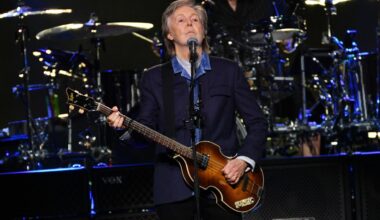
“The stage? I don’t need it. Freddie don’t need it to be immortal.” Those words weren’t shouted — they were dared. In a small, dimly lit pub where the ceiling hummed with years of spilled stories and cheap beer, Mickey Callisto stood alone, clutching a microphone as if it were the last torch of truth in a world obsessed with spectacle. There were no lights, no smoke, no backup band — just a man, a voice, and a defiance that felt like electricity waiting to strike.
Callisto’s performance wasn’t about perfection; it was about presence. Every breath, every note dripped with the conviction of someone who refuses to let art be defined by production. His tone carried the grit of lived emotion, trembling between reverence and rebellion. When he invoked Freddie Mercury, it wasn’t imitation — it was communion. You could feel the echo of legends in the air, but Mickey wasn’t chasing ghosts; he was reminding the room that greatness doesn’t need a stage — it needs truth.
As he sang, the small crowd fell silent. The clinking glasses stopped, the chatter faded, and all that remained was the raw vibration of a voice that felt both ancient and immediate. His lyrics weren’t just sung — they were confessed, spilling out like a sermon for the forgotten believers of real music. It was as if the pub itself leaned closer to listen, walls soaking in the sound of a soul refusing to fade into background noise.
When the final line left his lips, Mickey didn’t bow or wait for applause. He just smiled — quiet, knowing — and walked off into the same dim light that birthed his performance. The room erupted, but he didn’t turn back. Because he was right: the stage is a place, but immortality is a moment — and Mickey Callisto had just created one.





